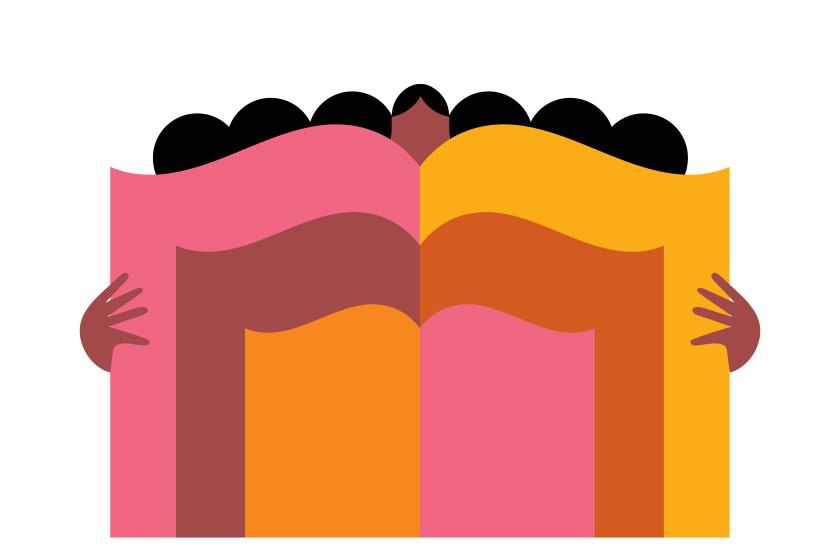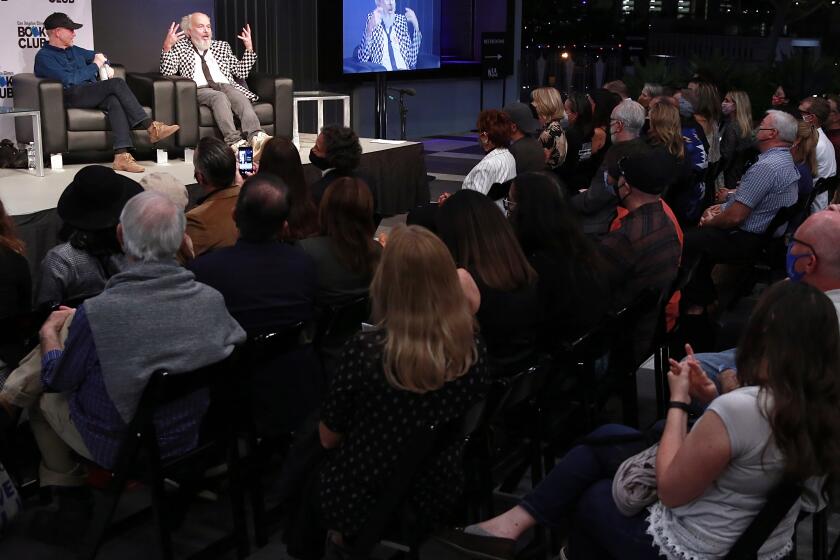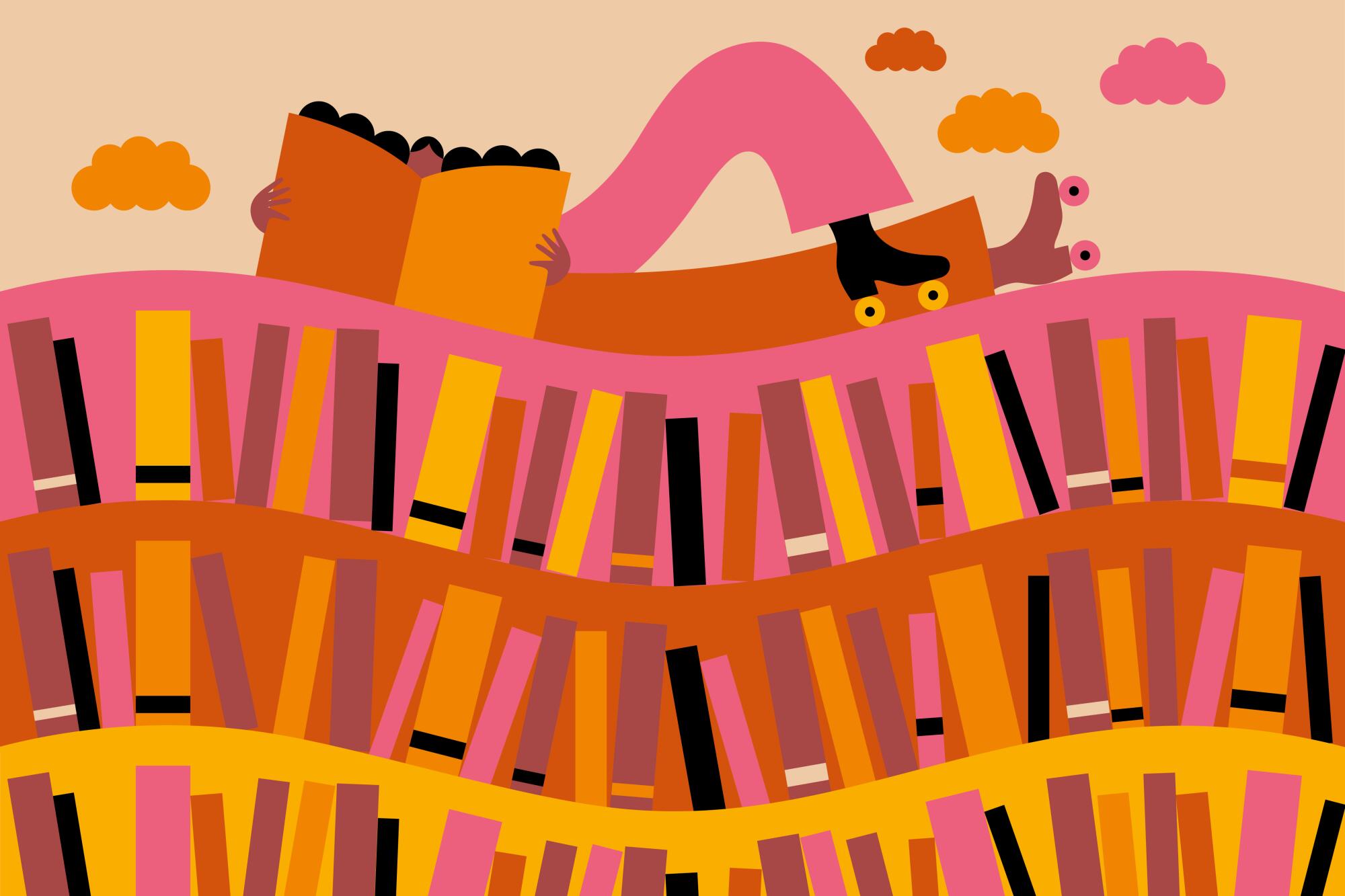
- Share via
This story is part of Lit City, our comprehensive guide to the literary geography of Los Angeles.
Years ago, I worked the graveyard shift at Gorky’s Cafe in downtown L.A., getting off work at 9 a.m. Too restless to sleep, I’d jump on the bus that went all the way to the Pacific. I’d find a spot on Venice Beach and, still dressed for work, sit reading in the sand. Books like William S. Burroughs’ “Junky” — I was going through that Beats phase.
I knew even then, years before covering books as a writer and editor for The Times, that Los Angeles is made for reading. It’s always so beautiful outside. The variety of natural landscapes! And built environments! The perfect light! If reading takes you away from the world, L.A. allows you to also be in it, with the sun on your shoulders, the warmth of a concrete bench, the rustle of leaves. We are of this natural world, and L.A. invites readers to step out into it.
A guide to the literary geography of Los Angeles: A comprehensive bookstore map, writers’ meetups, place histories, an author survey, essays and more.
When the city went through a big growth spurt in the 1920s, it was driven partly by the idea that the weather was a cure-all. Boosters advertised the benefits of sunshine, mild days, cool desert nights.
I learned this from Kevin Starr’s “California Dream” series of histories, even as I took the cure myself. In 2001, I sat in a grassy yard devouring “Material Dreams: Southern California through the 1920s” while up the hill people were running the trails in Elysian Park. My utopia was the same as theirs — or adjacent to it. I’d visit the museum at the La Brea Tar Pits, then step outside into delightful Hancock Park, book in hand.
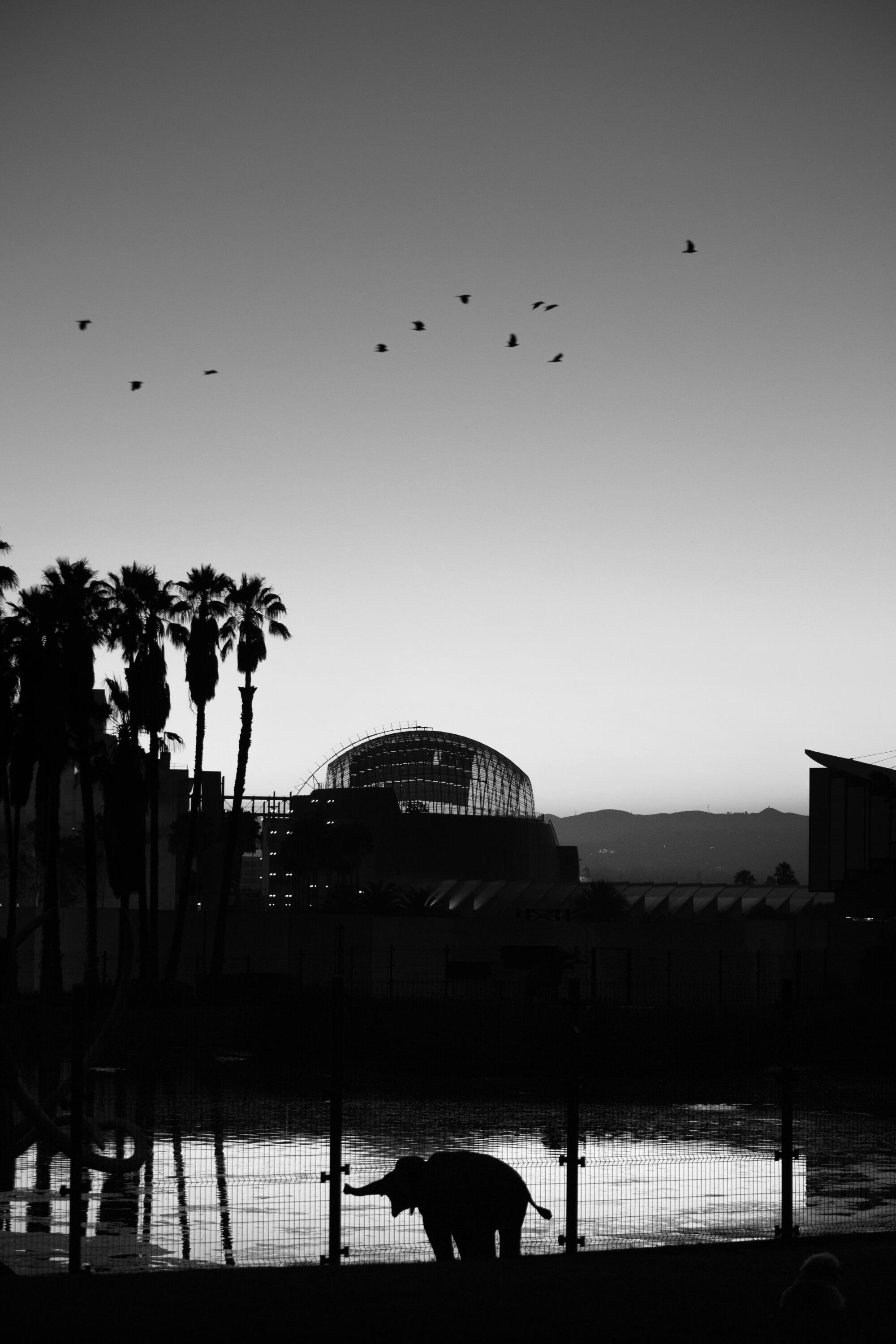
Of course, weather is not a cure-all; sunshine doesn’t make all dreams real. When I worked at The Times in the old building in downtown L.A., two of my favorite places to read were Pershing Square and the park in front of the Central Library. There is undeniably a tension around some public spaces, especially downtown, where they can be a refuge for unhoused people who have so few places to go. I hope (perhaps naively) that L.A. will someday provide decent housing for all.
I’ve been lucky — I’ve always been able to find a place to live, which is also a place to read. So many homes in L.A. are graced with outdoor space. Maybe you’ve got a small balcony or a huge yard, maybe a back patio or a shared courtyard or a front stoop. I hope so. I hope you can take time to read outside, in space that’s yours or shared.
Authors Ann Patchett, Lisa See, Lynell George and others talk about the books where they found refuge this year.
Sometimes it takes a little distance to see what a gift that is. I’m writing this in the Hudson Valley in March, where there is still snow on the ground, and winter will smash us again before spring comes.
I lived in L.A. on and off for a couple of decades. I remember exactly where I was, what I was reading, when I first realized I could leave. I was sitting on campus at USC, nearing the end of my senior year with my back against the warm brick wall of the building where I studied international relations, reading Joan Didion’s “Goodbye to All That.” It’s become cliche now, I know. But that was 1991, and I read it and wept, out there in public, because Didion’s essay showed me that you could fall in love with a city and also out of love with it, and when that happened it was OK to move away.
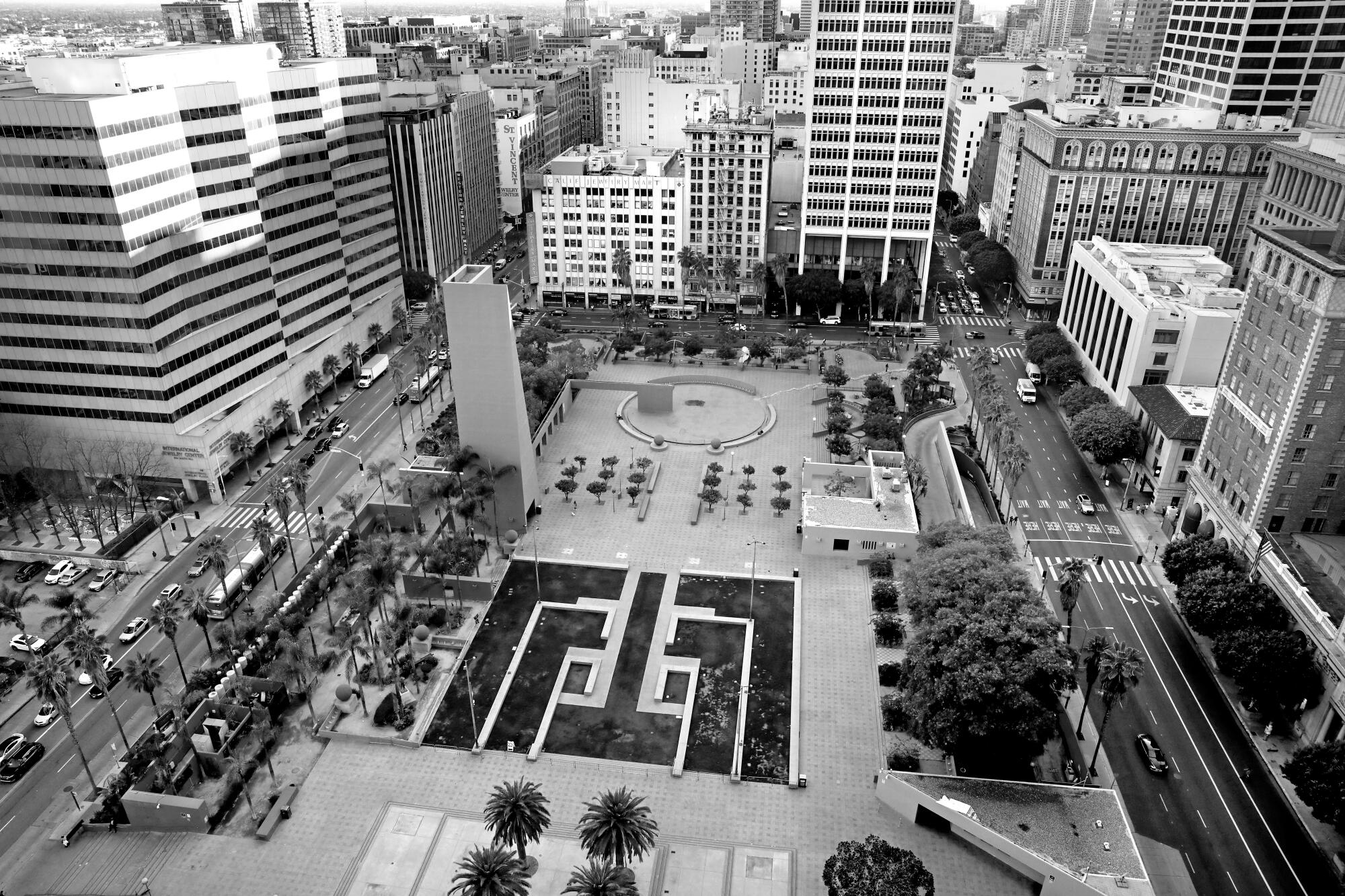
For some writers, L.A. never stuck. Picture William Faulkner sitting on his Hollywood patio, shirtless, sunglasses, shorts, wearing high wooly socks. Those socks said no. Faulkner told his studio bosses he was heading home to work on a project and went all the way to Mississippi.
But to me, L.A. is a wondrous place despite its faults. I miss it.
In L.A., it’s already outdoor reading season because it’s really always outdoor reading season. Put on your sunscreen, grab a book and head outside to read.
Soon, I’ll be able to do that myself. I’ll be back for a visit in April — for the L.A. Times Festival of Books, where we’ll all be reading outside together.
Kellogg is a former Books editor of The Times. She can be found online at @paperhaus.
More to Read
Sign up for our Book Club newsletter
Get the latest news, events and more from the Los Angeles Times Book Club, and help us get L.A. reading and talking.
You may occasionally receive promotional content from the Los Angeles Times.
